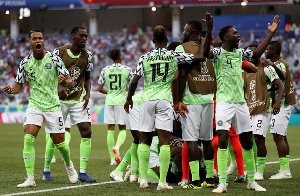The enigma that is African football has once again failed to capture the imagination at the World Cup.
The enigma that is African football has once again failed to capture the imagination as the continent’s five-pronged delegation bowed out of the World Cup in Russia in time to catch a flight back home to watch the business end of the
competition from the luxury of their own living rooms.
And to make matters worse, three of the five weren’t even alive by the time the final group matches kicked off.
Only Nigeria and Senegal were still in the running for a place in the last-16 by that time as a pair of opening losses spelled the end for Egypt, Morocco and Tunisia.
In fact, the tournament was a mere nine days old when 60% of Africa’s contestants were eliminated.
And to add insult to injury after Nigeria and Senegal fell by the wayside after their last group matches, the Senegalese cried foul over the manner in which they were eliminated.
According to the football bosses back in Dakar, the fact that Japan edged them on the fair play rule isn’t all that fair.
Oh, give me a break.
The tournament rules specifically state that in the event of two or more teams being level on points, they go to head-to-head, after which they were still deadlocked because their match ended in a draw, then goal difference (zero each), goals scored (four each) and then fair play, in which case Senegal received six bookings compared to Japan’s four.
Rules are rules, finish en klaar.
Besides, like a coin toss would have been fairer.
And even if Africa had representation in the knockout round in Russia, the traditional bonus demands would have likely derailed any chance of any of our continental colleagues progressing any further.
A perfect example of this phenomenon was a chartered plane jetting in $3 million in banknotes into Brazil four years ago to avoid Ghanaian players from going on strike.
A few days later, Nigerian players actually did down tools ahead of their last-16 tie against France, also over bonus demands.
Needless to say, Nigeria lost to the French and Ghana couldn’t record one win.
Over the years there have been plenty of calls for the number of African teams to increase from the current five.
Even former Fifa boss Sepp Blatter once said a numerical advantage greatly assists European teams and that African teams can also make deep inroads into the World Cup if they are allowed more teams.
I tend to disagree, as quantity won’t necessarily boost quality.
When Cameroon became the first African nation to reach the World Cup quarterfinals in 1990, there were only two contestants from this continent, Egypt being the other.
During the next two editions, despite the continent’s tally increasing to three and five respectively, no African team made it past the last-16.
And with the number remaining at five and even reaching a high of six in 2010, only two more African sides have emulated Cameroon in the 28 years since Italia ’90.
Senegal in 2002 and Ghana in 2010.
So in a way, African football has actually gone backwards.
Tossing more mediocre teams into the mix, demanding bonuses and whining about the rules won’t solve their problems.
Playing better football will.
Sports Features of Thursday, 5 July 2018
Source: citizen.co.za

















